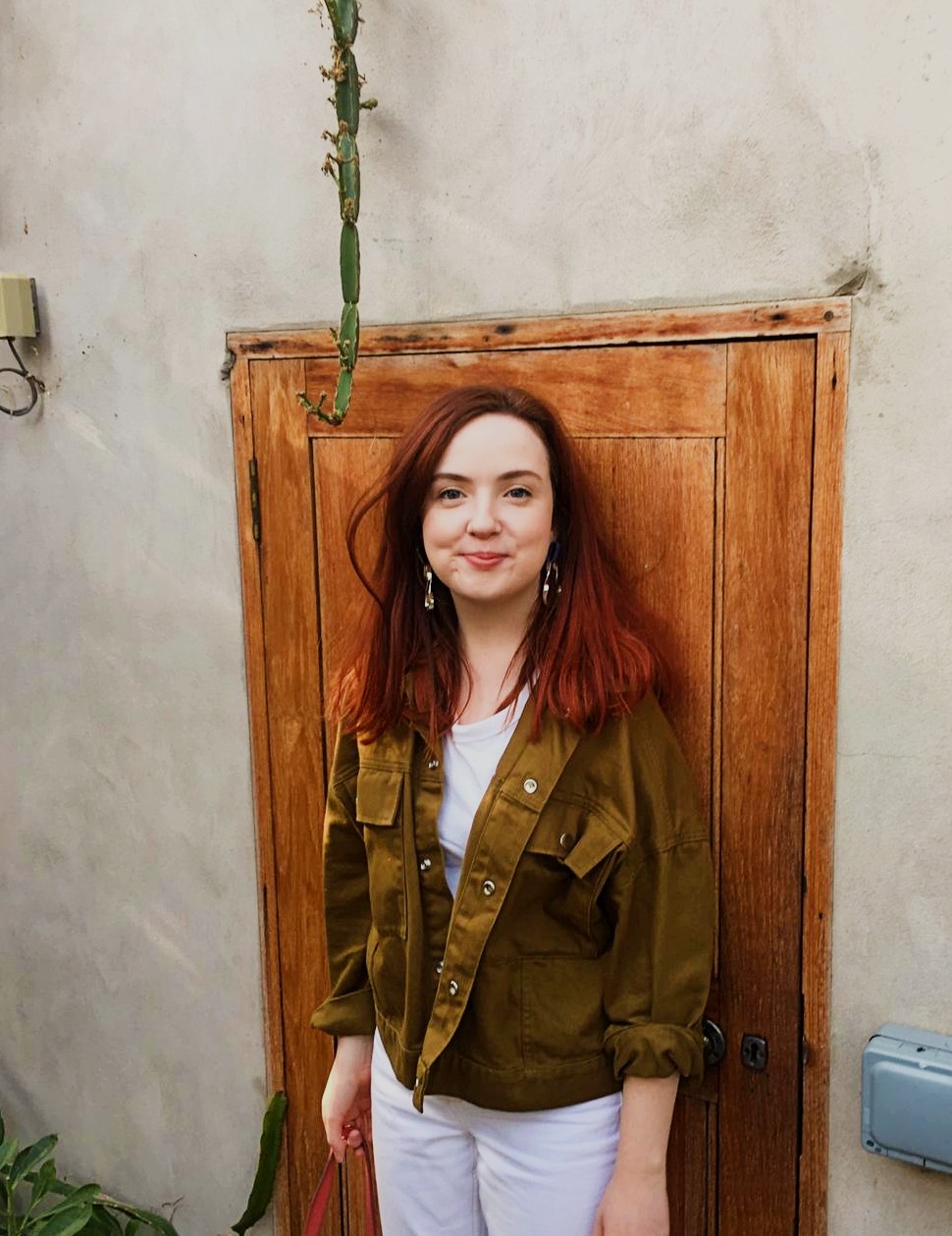Marie Claire UK Sustainability Awards 2021: Fashion Winners
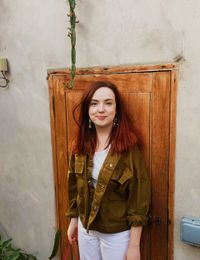
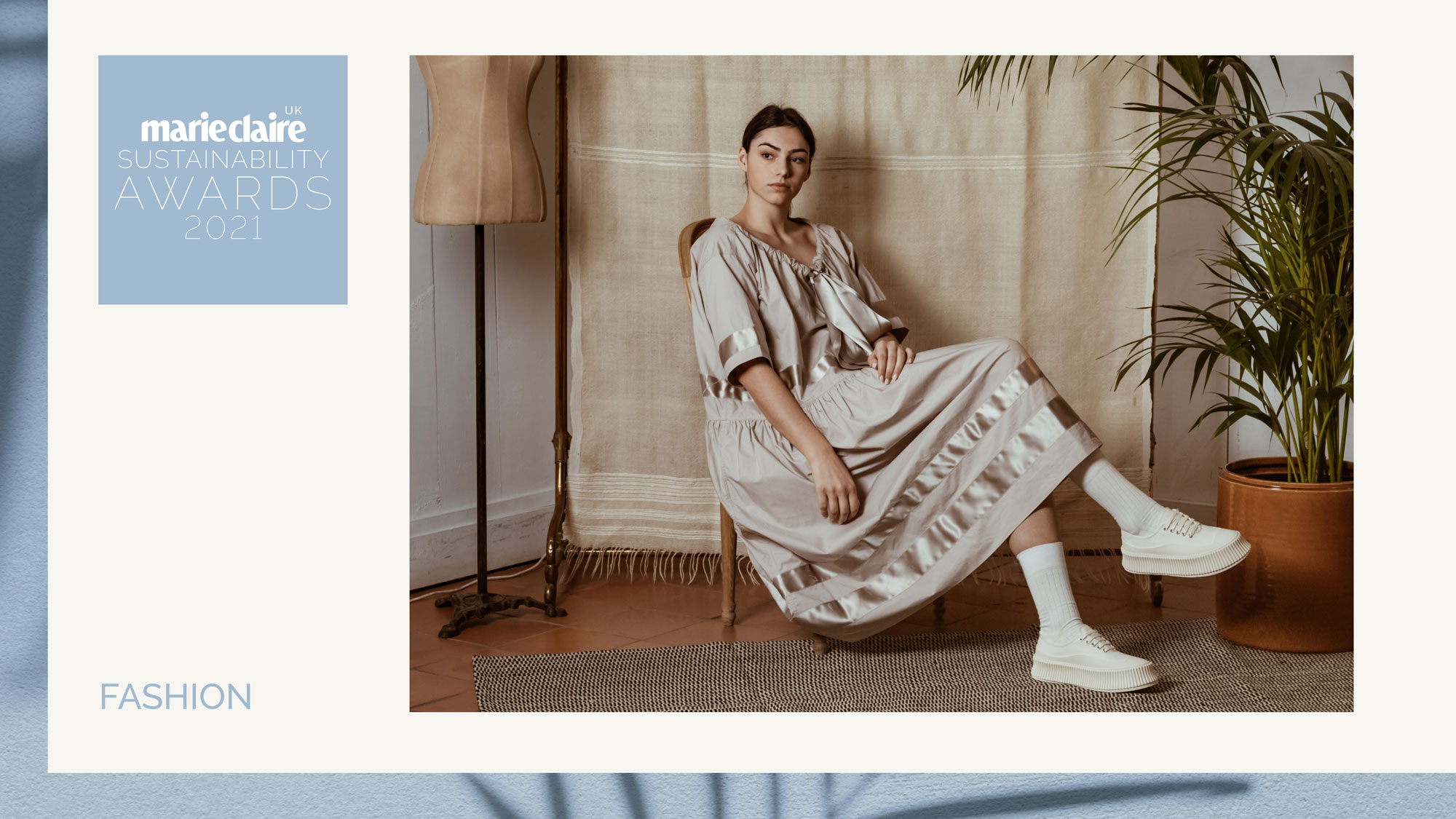
The fashion industry has a major role to play in slowing climate change and ensuring a more sustainable future for our planet. Unsustainable practices within the industry have a significant impact on social and environmental development, currently employing more than 300 million people globally across the value chain – many of whom are women.
As a result, the fashion brands awarded in the first-ever Marie Claire UK Sustainability Awards are change-makers as well as tastemakers. Offering a glimpse of what fashion's future might look like should other brands follow in their trail, these innovators are proof that great clothes, accessories and jewellery shouldn't cost the earth.
Here are the Marie Claire UK Sustainability Awards Fashion winners...
Marie Claire UK Sustainability Awards Fashion winners
Best for Carbon Footprint
Winner: Allbirds
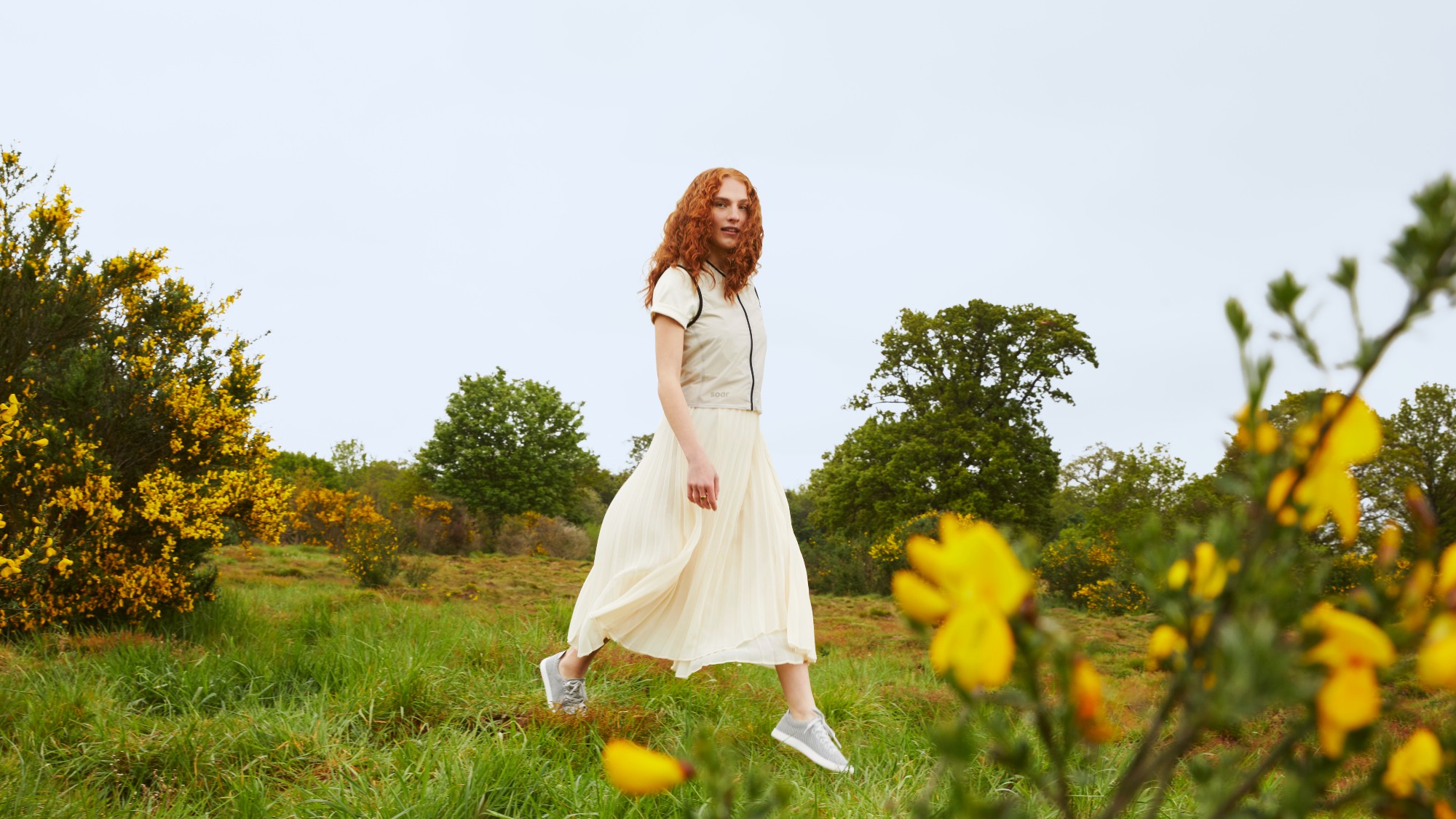
Allbirds recognises that the climate crisis can't be solved by one brand alone, so it strives for a collaborative approach to tackling the issue across the fashion industry. Its journey towards carbon neutrality is threefold: first, it measures its impact using an LCA tool, then it reduces it by investing in natural materials and better practices, and, finally, it offsets what is left through verified emissions reduction projects.
In 2019, Allbirds achieved carbon neutrality throughout its entire business and, in a move towards total transparency last year, Allbirds became the first fashion brand to label all of its products with carbon footprints. But it isn't content with stopping there. To help consumers make more informed decisions, Allbirds wants carbon labelling in the fashion industry to be as ubiquitous as nutrition labelling is in the food industry. Which is why for Earth Day 2021, the brand open-sourced its carbon-footprint methodology via FreeTheFootprint.com for any fashion brand to use for free – yep, even its competitors.
Speaking of the judges' decision to award Allbirds Best for Carbon Footprint in the fashion category, Dilys Williams, Director of the Centre for Sustainable Fashion, says: "The integrity of this work is clear and exemplary, and the sharing of methodology to encourage others is great practice too."
Highly commended: Mondaine
Best Ethical Brand
Winner: Birdsong

With the knowledge that 80% of garment workers (including those working in sweatshops) are women, Birdsong was founded to create a fashion industry that feels inclusive, dignified and transformative for local economies. Working mostly with talented migrant and refugee women, and survivors of domestic abuse in London's Tower Hamlets, as well as older knitters who choose to donate revenue back to the day centre, Birdsong is the only UK-based fashion brand specifically supporting local communities and marginalised women.
Celebrity news, beauty, fashion advice, and fascinating features, delivered straight to your inbox!
The brand works to counteract funding cuts to vital women’s services, and encourages Living Wages in a localised fashion industry. Despite being forced to close all production and shipping from April to June of 2020, and subsequently seeing a reduction in sales, the sustainable brand's impact didn't change. Prior to the pandemic in 2019, Birdsong paid its UK workers and charities £31,554.56. In 2020, during the pandemic, the brand paid a total of £34,134.20. Committed to reinventing how the fashion industry operates, Birdsong proves that fashion can be good for those who wear it and for those who make it.
MC's Digital Fashion Editor Penny Goldstone says: "Instead of outsourcing work to sweatshops, the brand works with migrant and refugee women, and survivors of domestic abuse in a notoriously poor area. All orders are packed by adults with learning disabilities in Camden, providing vital employment to those in need."
Highly commended: Aspiga
Best Ethical Retailer
Winner: Wolf & Badger
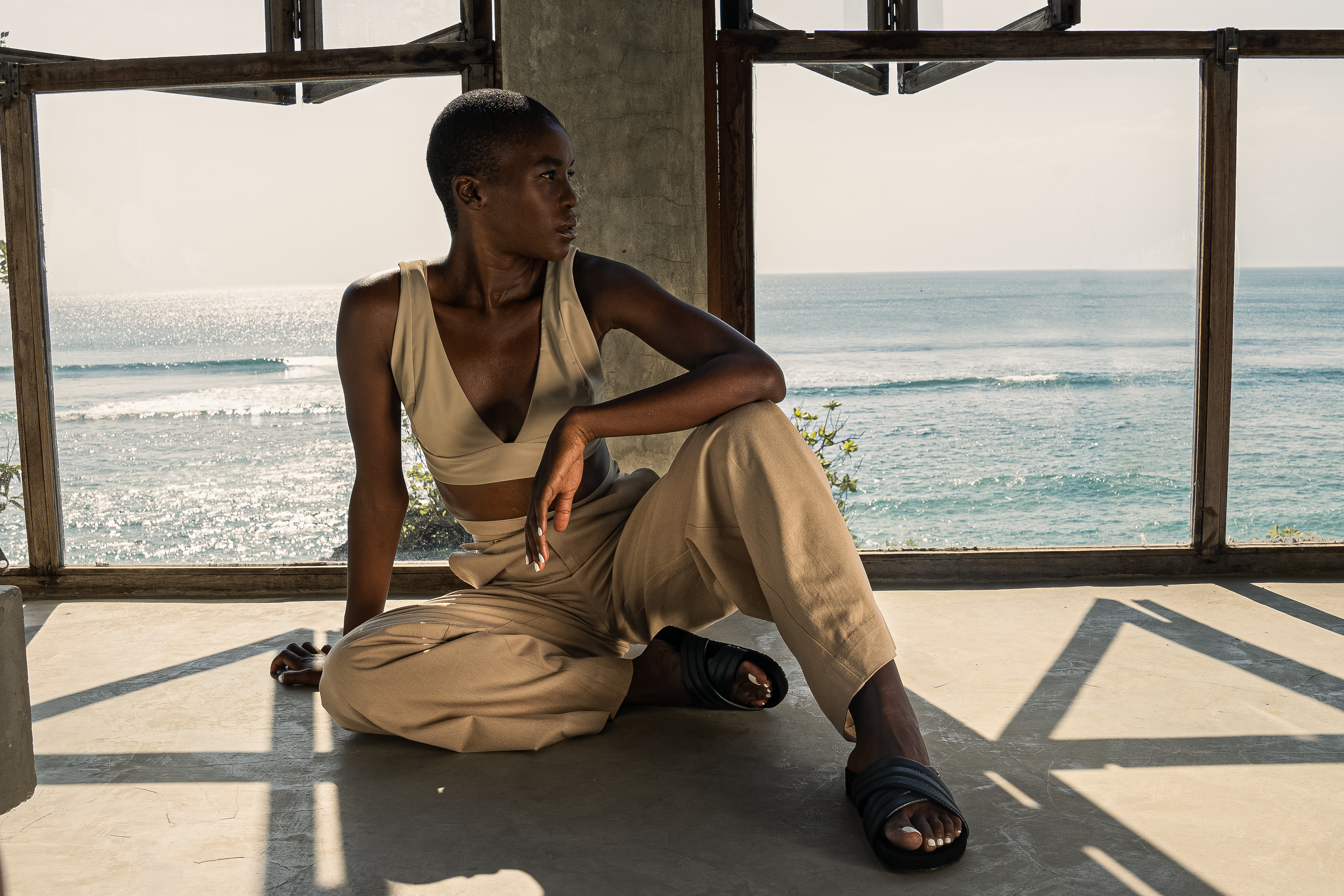
Last year, online marketplace Wolf & Badger launched its Sustainability Guarantees – 15 no-nonsense qualifications to help customers better understand a label's eco-credentials. From 'green' (the symbol that means a brand has a net-zero carbon footprint) to 'happy worker' (which means workers receive the living wage and no human trafficking is involved in production), Wolf & Badger's easy-to-follow guarantees are just the latest step the retailer has taken in its bid to demystify why shopping with independent brands is an ethical option.
Not only does helping people shop smarter contribute to a reduction in returns – a huge environmental problem faced by the fashion industry – but it incentivises brands themselves to consider every element of responsible production, and incorporate them into their business models. Earlier this year Wolf & Badger also became the first UK online marketplace to become a certified B Corporation.
TALA and SHREDDY founder, and MC Sustainability Awards judge Grace Beverley says: "[Wolf & Badger is] a great example of translating sustainability into the everyday – creating tangible examples of why shopping smarter matters for the planet. [This is a] fantastic move towards making sustainability easier to understand, and therefore more likely to translate into customer's shopping habits."
Best Progress Towards Circularity
Winner: Baukjen
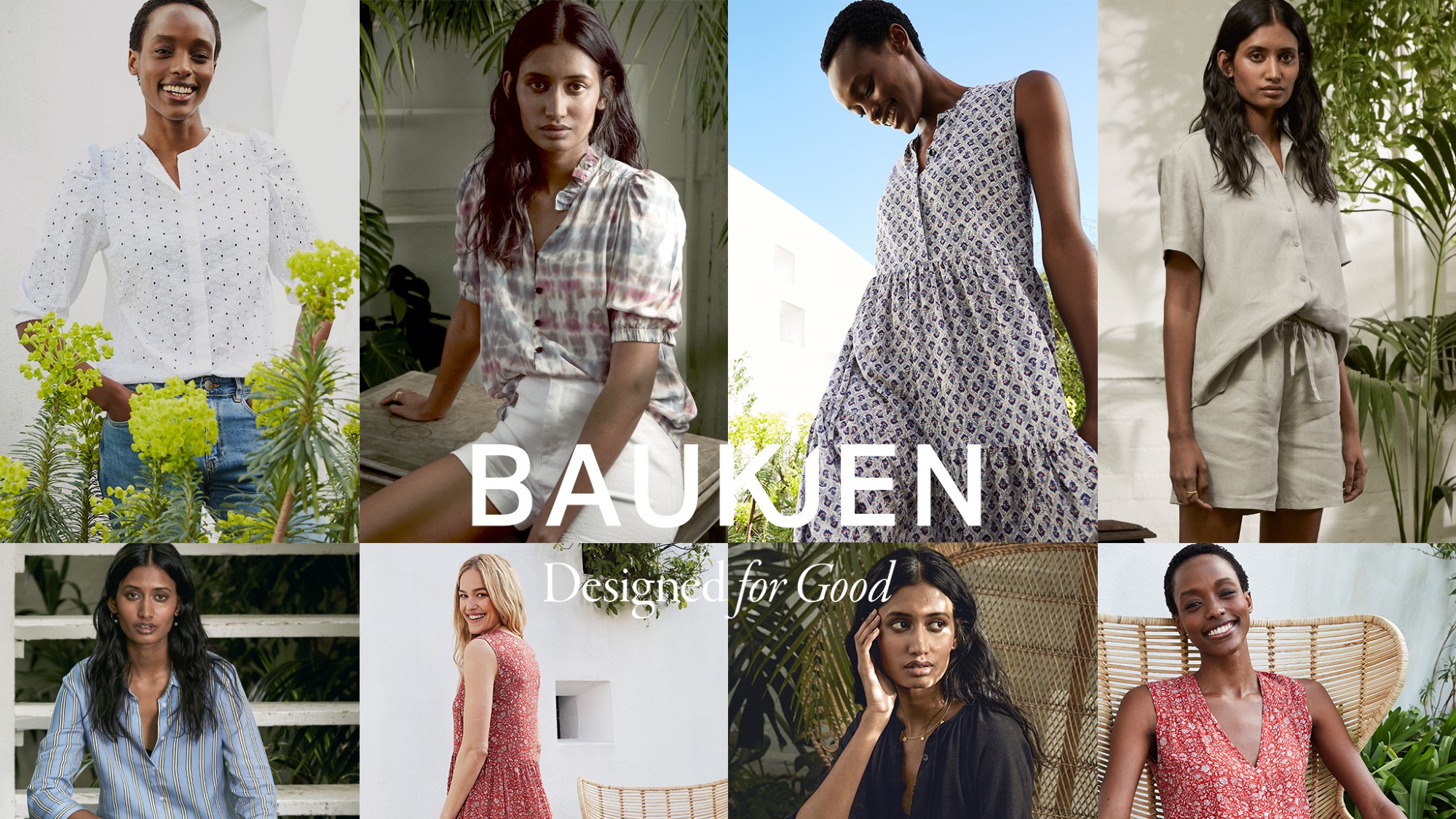
It makes perfect sense that Baukjen has secured the position of highest-scoring Fashion B Corp in the UK. Committed to disrupting the fast-fashion industry, Baukjen collections are now made from 92% responsibly sourced fibres, most of which are natural and biodegradable. All of the brand's cotton is organic or from the Better Cotton Initiative, while all its viscose is now EcoVero – which not only has a smaller environmental impact, but supports responsible forestry too.
In fact, less than 10% of all fibres in the brand's collections are synthetic. Baukjen also works collaboratively with manufactures to adopt a zero-waste approach, and recycles 90% of its textile waste. These are clothes that are designed to last – with the brand sharing care and repair advice with customers to help them extend the lifespan of each piece. Garments recycled with Baukjen are donated to charity or sustainably recycled to create new fabrics and, in the future, the brand plans to recycle all garments and operate in a cradle-to-cradle loop.
It's also currently working on the digital traceability of garments to add total transparency to the supply chain, eventually allowing customers to trace their product journey from design to material provenance.
Amy Nelson-Bennett, Managing Director of Positive Luxury, says of the judges' decision to award Baukjen Best Progress Towards Circularity: "The work they have done across all areas of sustainability is truly impressive, and I particularly love the 'where we are now/where we're going' element. They exude utter credibility."
Highly commended: ECONYL
Best Re-commerce
Winner: Thrift+
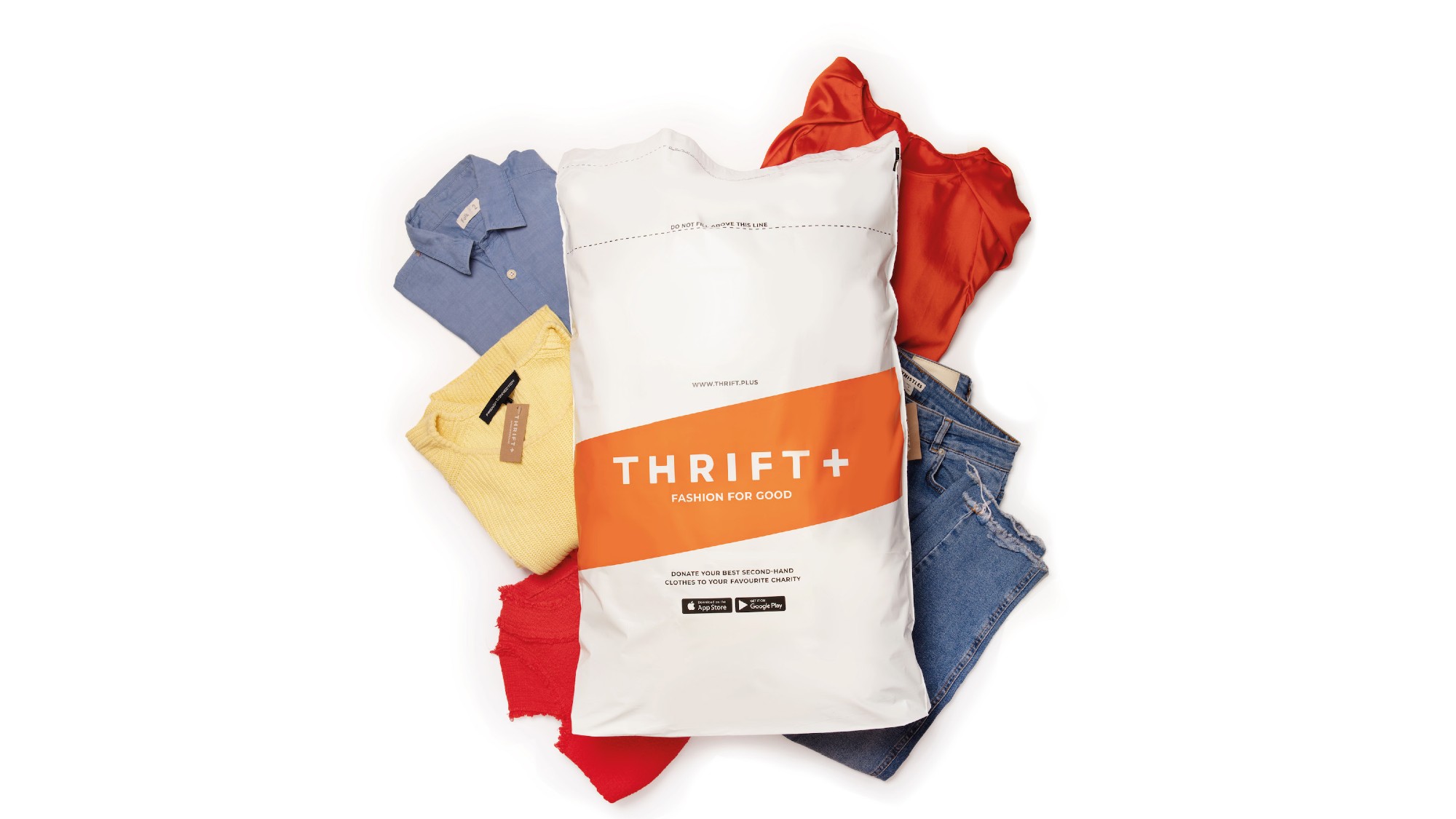
On a mission to ensure no item of clothing that could still be worn is thrown away, Thrift+ is a second-hand clothes marketplace that makes it easier to resell than it is to discard. Processing more than 300,000 items of clothing every month, with nearly 100,000 items available on site at any time, Thrift+ makes sustainable shopping as easy as possible – with 30-day returns, an easy-to-use website and app, and a credit and reward programme.
The platform also makes reselling clothes a breeze: sellers simply have to order an eco-friendly bioplastic ThriftBag, fill it up, and return it for free. From there, they'll do all the work, including photographing, pricing and selling, encouraging people who wouldn't otherwise make the effort to give their clothes a second life. And it's clearly working. Since launching in 2017, the brand has diverted more than 150,000 items of clothing from landfill.
"Thrift+ delivers on the innovation we need to see from businesses at large to create closed-loop solutions that are beginning to tackle multiple global sustainability issues in an intersectional way," says Sustainability Awards judge and Director of ESE Consultancy, Emma Slade Edmondson.
Highly commended: Vivobarefoot
Best Rental Brand – Womenswear
Winner: Rotaro
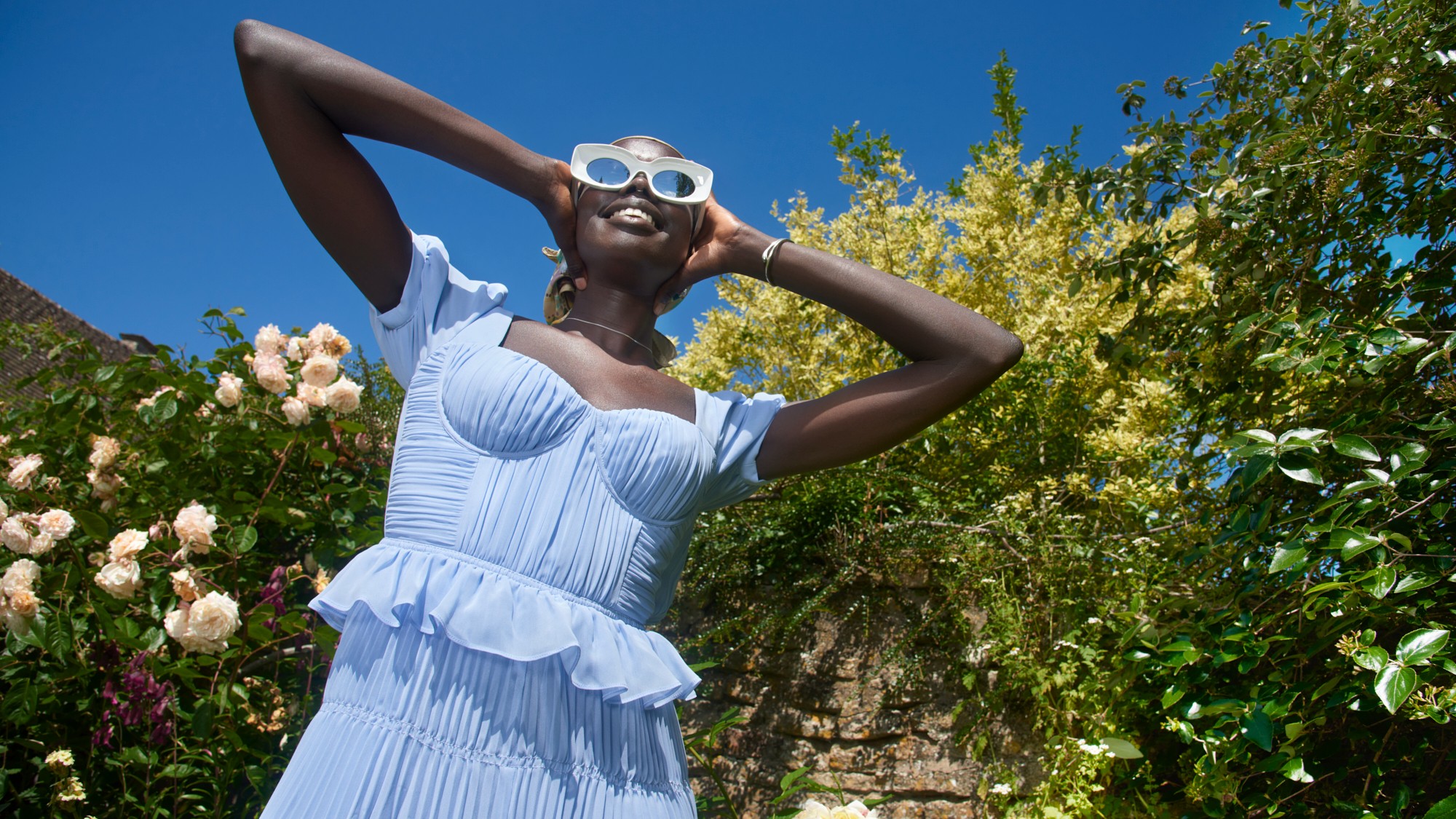
Born out of an urgent need to re-engineer the fashion system, Rotaro is a marketplace for brands to access their circular economy customer – enabling them to extend the lifespan of their garments, mobilise their unsold stock, gain new revenue, and reach a new audience. Sustainability is at the heart of everything the platform delivers – from using a carbon-neutral delivery partner, to its zero-waste reusable garment bags and promise to plant a tree for every rental or a thicket of trees for every new brand brought onboard.
Sustainability Awards judge Emma Slade Edmondson says: "Rotaro's offering has great potential to invoke behaviour change, given its focus on culturally relevant fashion and its eye for brands. I see the brand attracting fashion enthusiasts who are not already subscribed to a 'responsible fashion mindset'."
Best Rental Brand – Kidswear
Winner: thelittleloop
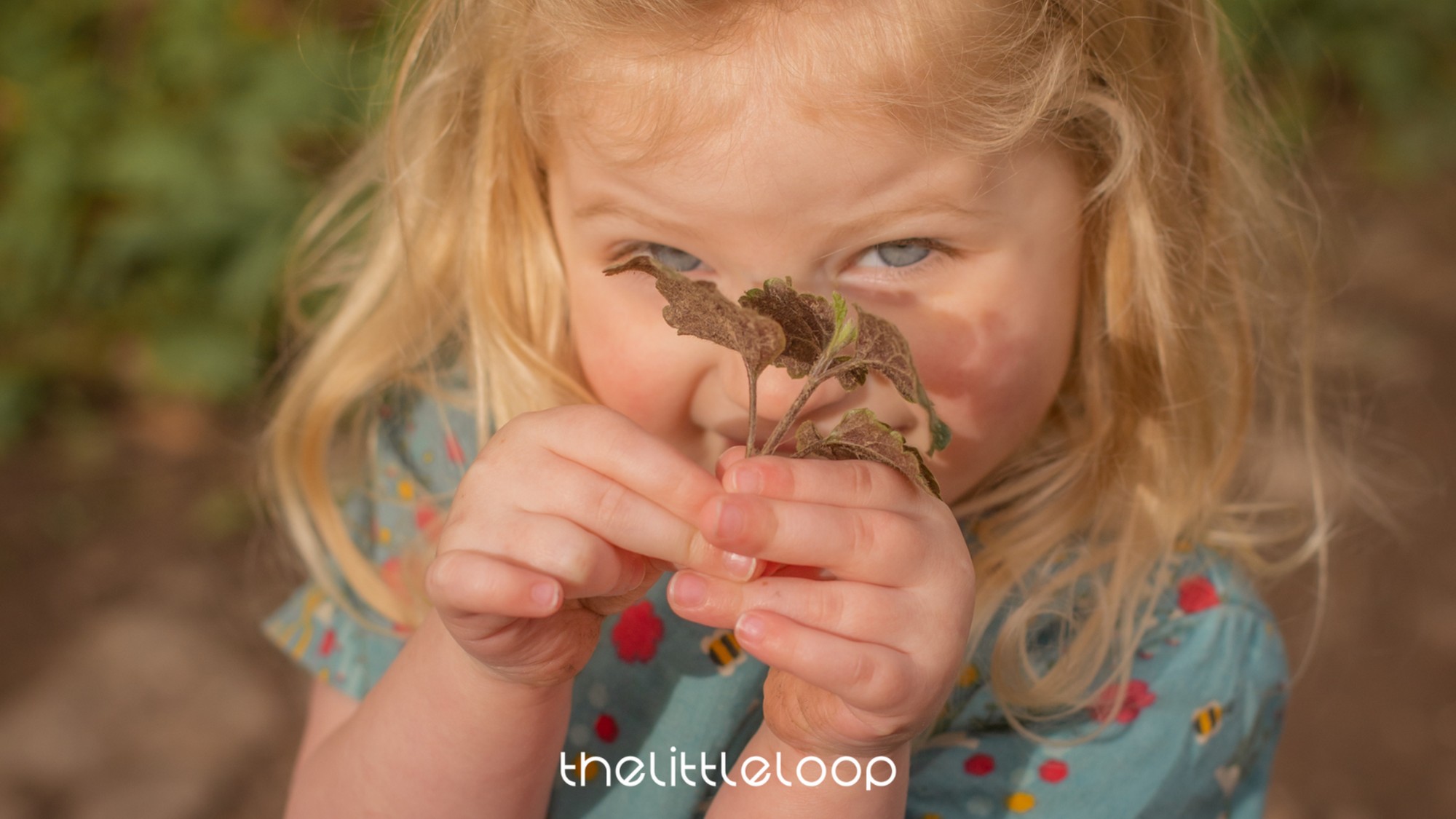
thelittleloop is the UK's first rental marketplace for kids' clothing, allowing parents to adopt rental as an everyday lifestyle choice, rather than just a one-off occasional experience. From its reusable mailing bags to a bespoke re-commerce platform, thelittleloop has revolutionised the conventional shopping experience – bringing together sustainability, convenience, style and value, to help both parents and the planet.
One of the few rental services that allows customers to specify an item's condition, the platform keeps garments in circulation for longer (in fact, up to five times longer, according to the brand's estimates) so they can have a greater environmental impact. Rather than wholesaling, thelittleloop partners with brands, allowing them to directly feedback with their data on clothing performance, and make recommendations on ways in which partners could improve the durability of their garments.
With children growing up to seven sizes in their first two years alone, the Sustainability Awards judges were highly impressed with thelittleloop's innovative and easy solution to the often overlooked problem of fast-fashion kidswear.
Best Supply Chain
Winner: Vivobarefoot
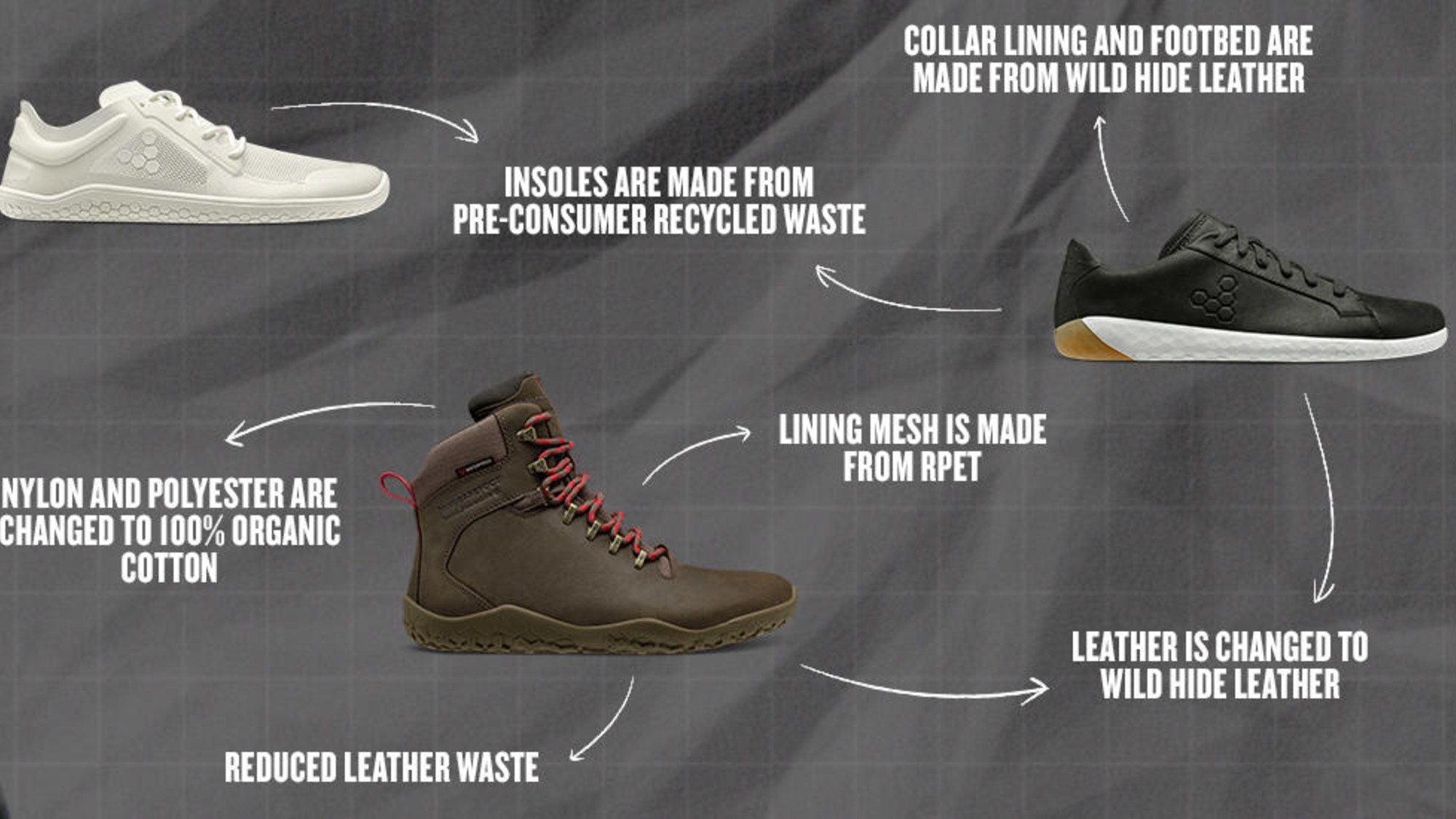
Vivobarefoot is constantly pushing to ensure that the creation of its wide, thin and flexible footwear has a net positive impact on both the environment and the health of the wearer. So much so that this year the brand launched its Redesign Heroes initiative, detailing how it has redesigned its entire product range to meet regenerative business commitments made in collaboration with circular economy experts in 2019.
Having radically reduced the materials and processes in the value chain to only those which meet their stringent regenerative footwear requirements, no new Vivobarefoot product is allowed to enter the world unless it fulfils the brand's natural, recycled or biosynthetic design criteria, with a good end-of-life solution. The development of a V Matrix and Regenerative Materials Toolboxes has guided the brand in its uncompromising approach throughout the initiative, and has resulted in a hugely impressive 37% reduction in the complexity of materials and supply chains used in the production process.
"This initiative really shows how companies need to start going beyond only sourcing sustainable materials, and consider how to reduce negative impacts from cradle to grave," says Sustainability Awards judge Christina Archer.
Highly commended: SO JUST SHOP
Best Sustainable Accessory Brand
Winner: Sylven New York
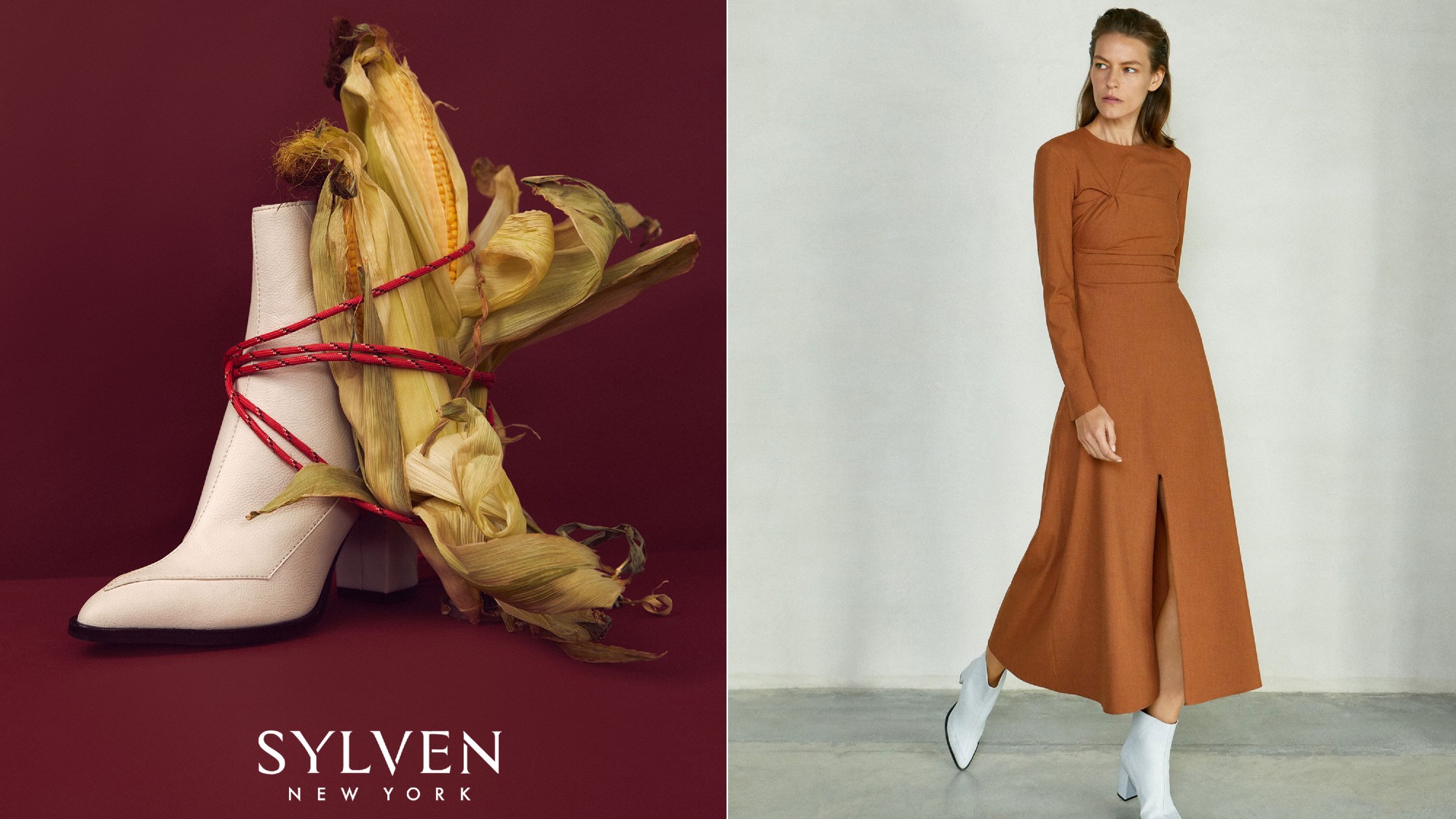
Sylven New York offers some of the most cutting-edge material innovations around – from its signature apple leather made from organic food waste, and insoles made from coconut husks, to soles made from tree sap. Avoiding plastic and chemically-derived synthetic materials at all costs, the brand believes that using nature-derived and animal-free materials is one of the most impactful things it can do to reduce its carbon emissions while not negatively contributing to global acidification, eutrophication, land-use, water-use, and depletion of biodiversity.
Sylven New York's approach to sustainability goes far beyond materials alone, though. From using fully recyclable and plastic-free packaging, to its work towards changing policy around industry-wide carbon taxes, this is one brand that understands how to make timeless, beautiful shoes that express the wearer's values as much as their style.
Highly commended: Watson & Wolfe
Best Sustainable Designer Brand
Winner: Mārīcī
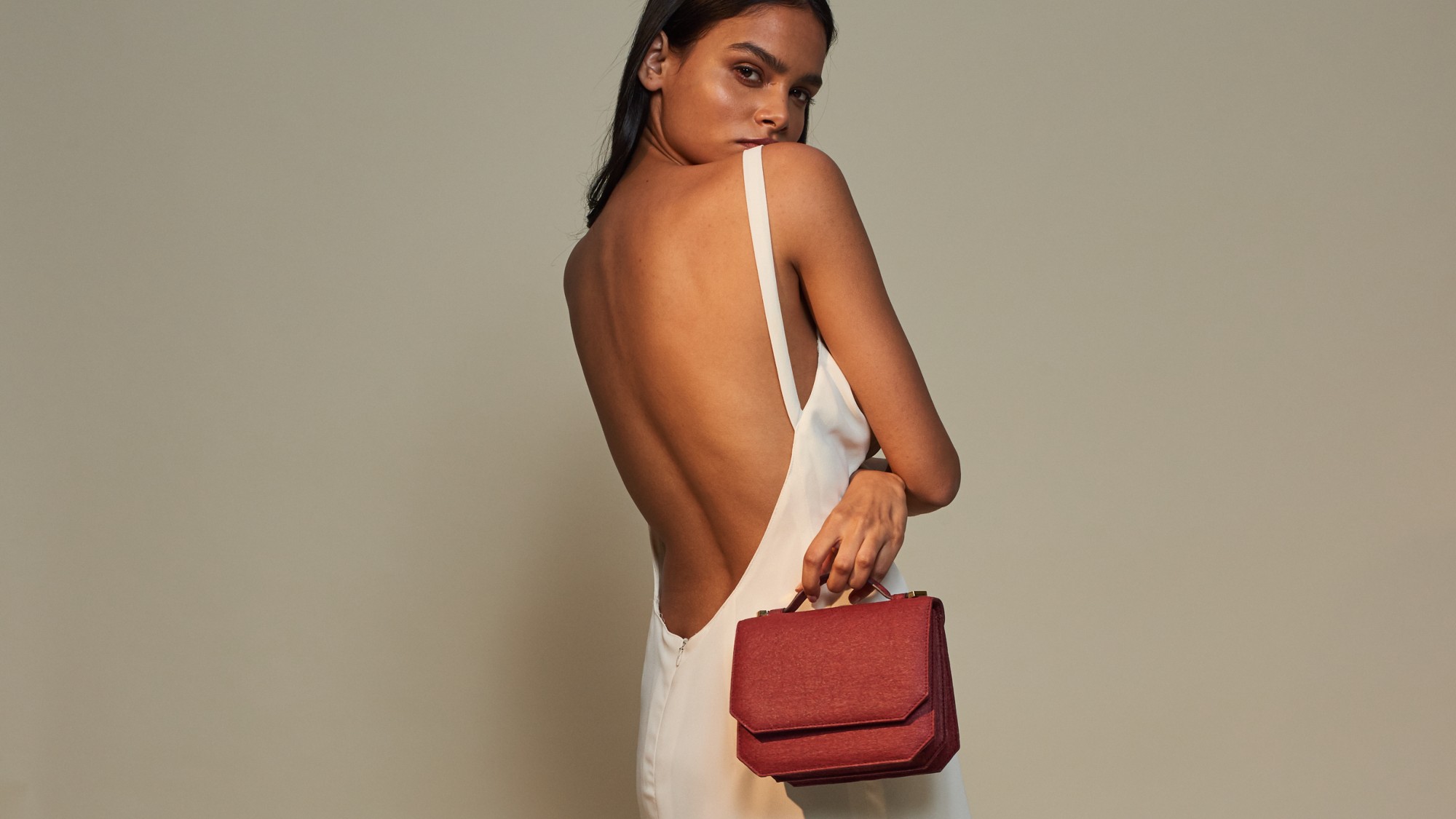
House of Marici was founded to tackle the growing problem of brands using environmentally damaging synthetic PVC-based leather in a bid to make their products free from animal cruelty. Its chic accessories are instead crafted from pinãtex, a pioneering fabric made from the waste plants of existing industries.
The first fully fledged plant-based luxury brand, House of Marici's ethical impact is as important as its environmental one; the brand knows every single person in its supply chain, and is always striving to work with small local businesses. Additionally, it is the only brand within the Selfridges' luxury designer accessories edit to pass the retailer's Project Earth requirements, and endeavours to upcycle all of its waste. That's pretty impressive, given that the London-based brand only launched last year.
Highly commended: ALICIA SWIM
Best Sustainable Fabric
Winner: SPINNOVA
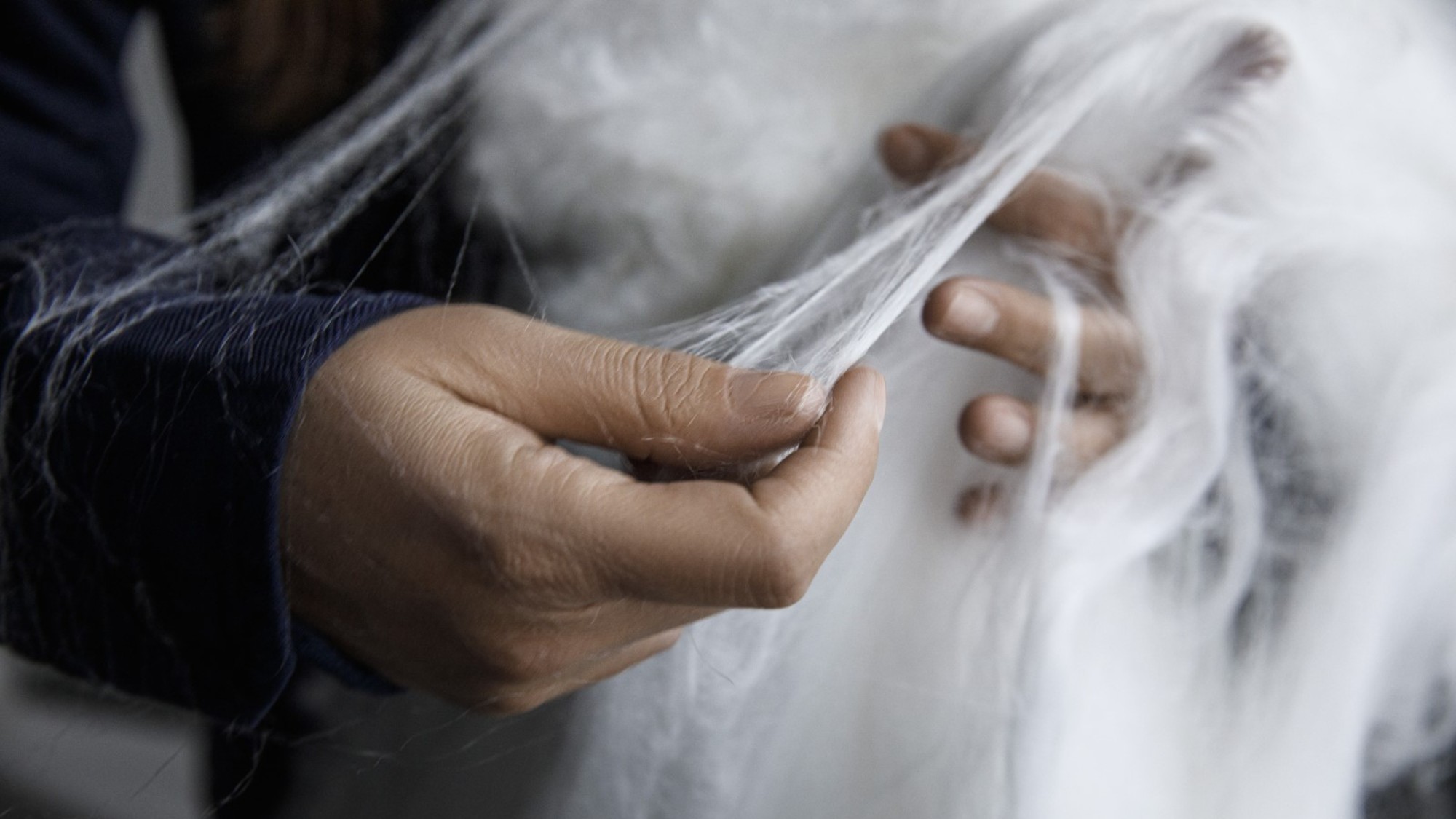
What if we could create a more sustainable textile industry by imitating nature? This was the question that led to SPINNOVA – a game-changing new way of making textile fibre without using harmful chemicals. Inspired by how spiders weave their webs, SPINNOVA takes cellulose – what it describes as "nature's most brilliant building material" – and aligns it in an optimal way to make a soft textile fibre that can be as warm as wool.
Boasting a minimal environmental footprint, and 99.5% less water use than cotton, this biodegradable fibre does not emit any microplastics and can be recycled repeatedly without losing its strength. The brand uses everything from wood pulp to agricultural residues, like wheat straw or potato peel, to produce its unique product – something that caught the attention of the MC Sustainability Awards judges.
"I love the use of natural materials to ensure compostability and biodegradability, and the diverse use of plant-based inputs," says sustainable fashion activist Aditi Mayer.
Highly commended: Aqua & Rock
Best Sustainable High Street Brand
Winner: [R E S E T]
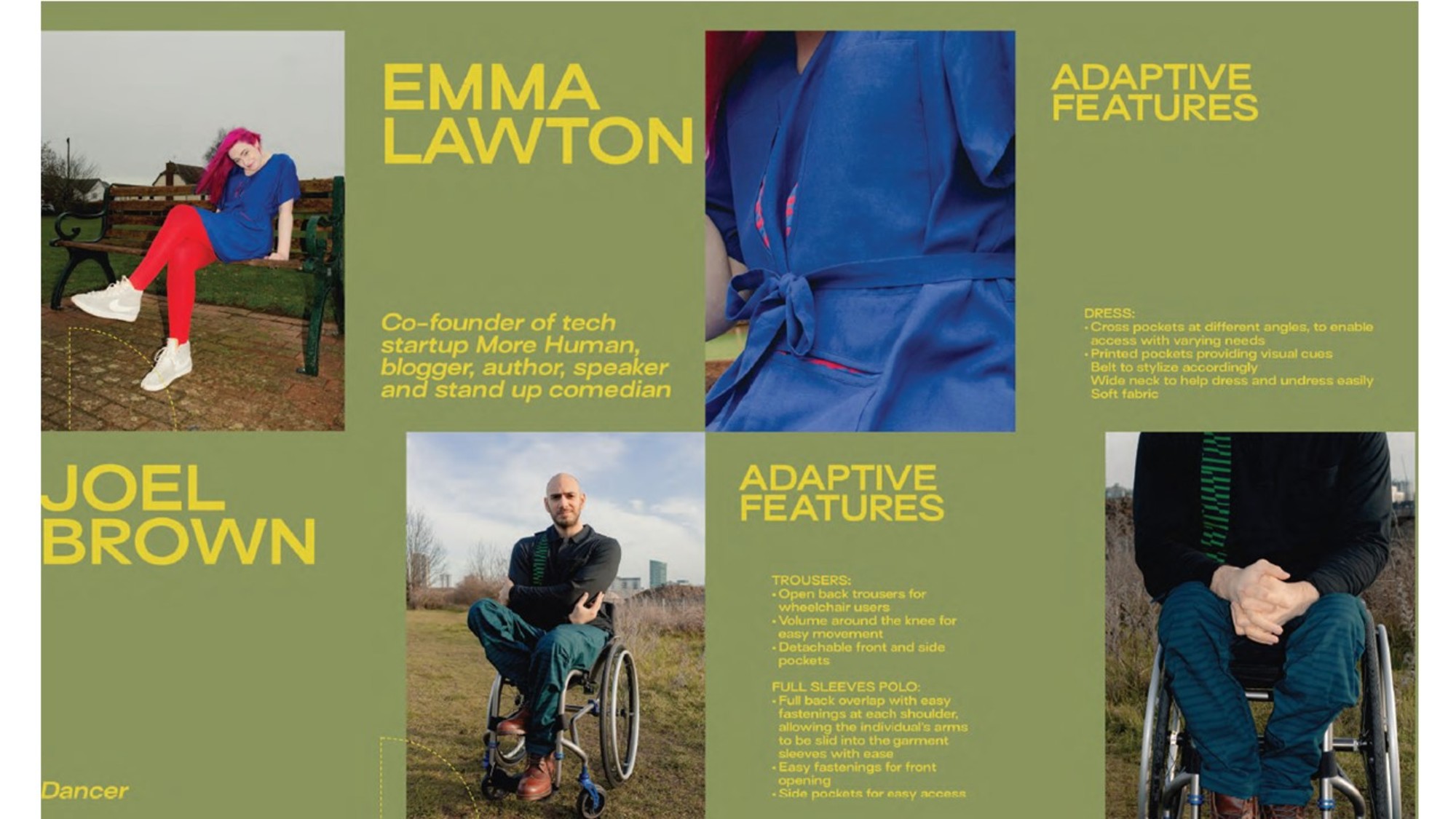
[R E S E T] is out to change fashion's notoriously blinkered attitude to inclusivity. Helping people with disabilities to gain confidence and independence, [R E S E T] makes clothes with features, designs, prints and colours to aid those grossly underserved by the current fashion climate. Focusing on the intersection between style and accessibility, the brand wants to be a voice for the differently abled on the high street.
MC Sustainability Awards judges Noëlla Coursaris Musunka has dubbed the brand "a brilliant example of fashion meeting purpose," and adds: "[R E S E T] is doing the important work of bringing accessibility and inclusivity into the fashion industry. Its innovative design thinking shows how clothing can actively improve lives by providing differently abled people with clothes that best support their needs, as well as with an avenue for self-expression."
Highly commended: Superdry
Best Sustainable Jeans
Winner: unspun
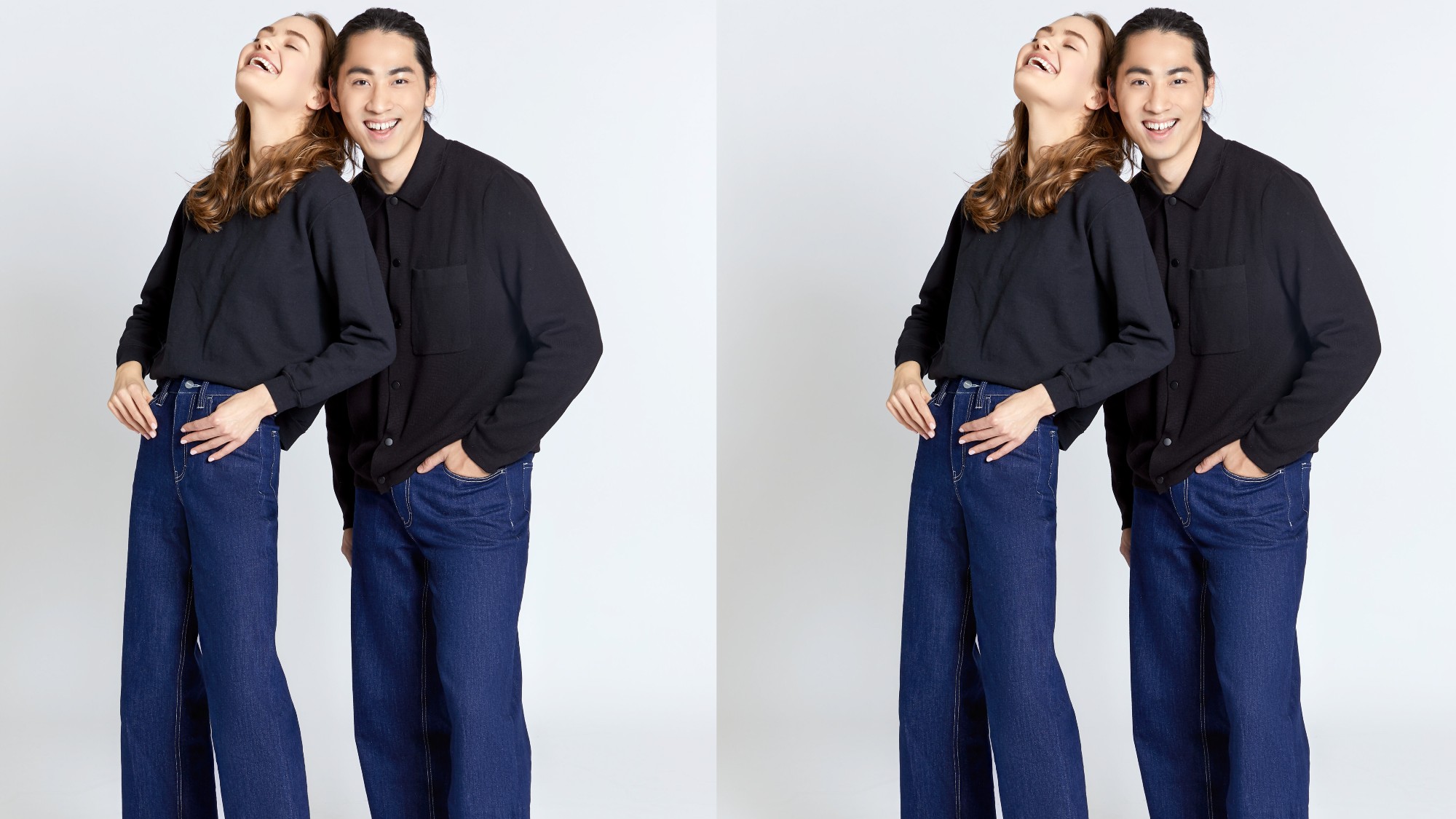
unspun heralds the next generation of denim. Using AI and 3D modelling to create custom and on-demand jeans that are unique to every customer, this first-of-its-kind custom-fit denim collection is shaking up the fashion industry as we know it. As each pair of jeans is made-to-measure, cutting out excess waste, the brand is reducing the industry's emissions by 30% (and hopes to eventually extend that by a further 20% through long-term commitment to circularity).
Made from 100% organic cotton by Panther Denim, with Resortecs thread and Dorlet buttons – both of which can be easily removed for quick recycling – each pair is assembled using fair labour through Frontline Clothing. By switching from a push-to-pull model, and enabling everyone – regardless of gender or body type – to wear jeans as they like them, this is a fashion brand of the future.
MC's Digital Fashion Editor Penny Goldstone says: "unspun jeans are custom-made to order, meaning that not only are they hugely inclusive – they use a 3D body scan to ensure jeans fit your body – but they cut waste, as no pair is created without a home."
Highly commended: Fanfare Label
Best Sustainable High Street Jewellery Brand
Winner: With Love Darling
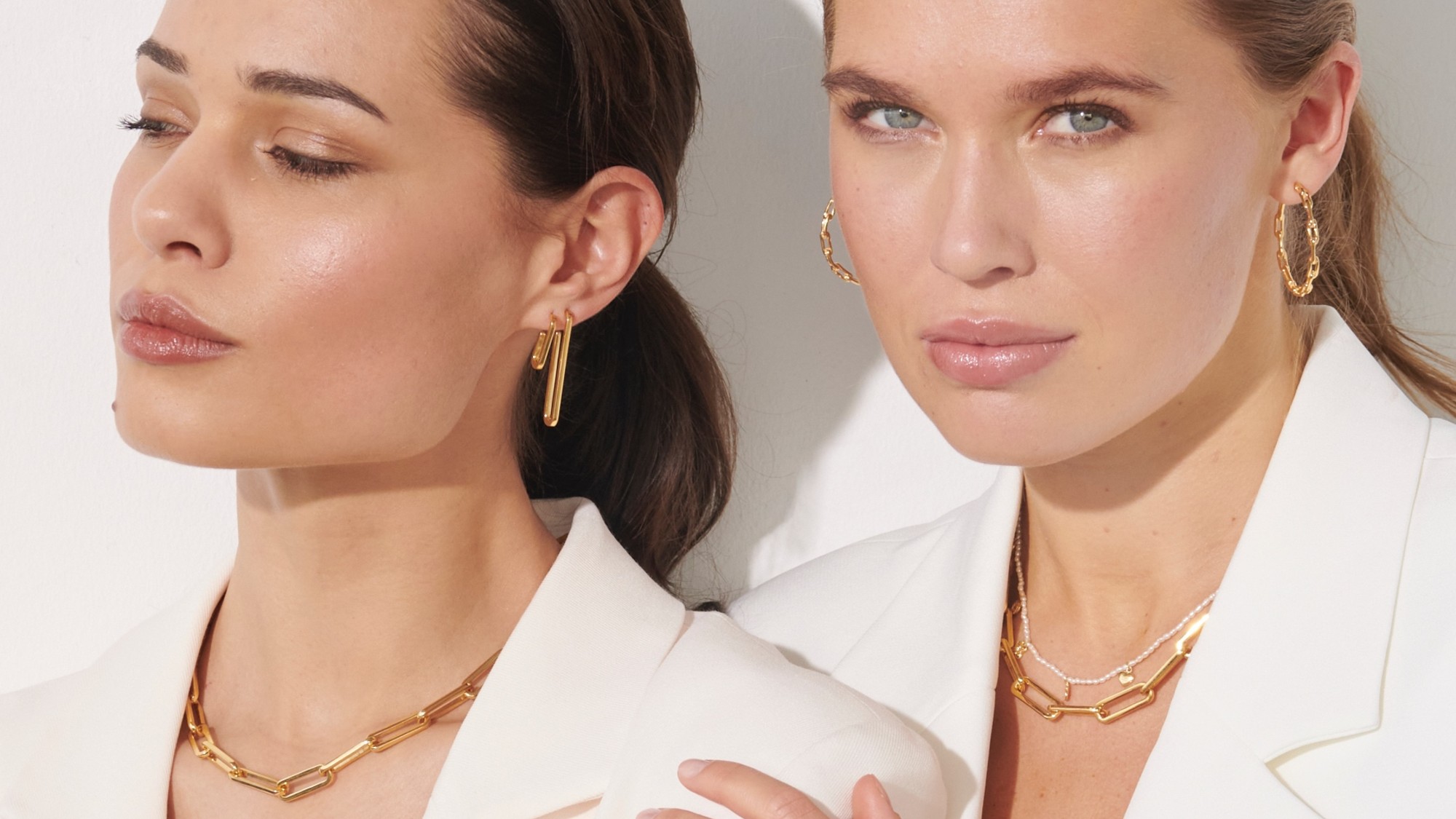
While working for the United Nations, With Love Darling founder Elisabeth Crossley-Wright experienced first-hand how important the UN Global Goals are, so she founded an ethical jewellery brand around them. All of With Love Darling's pieces are crafted from 100% recycled silver and gold, and are produced in third-world countries – giving the skilled (and fairly paid) artisans who make them the income to lift themselves and their families out of poverty.
Indeed, the brand's own goals are equally impressive. Working towards becoming carbon neutral by 2022, this fair-trade, sustainably packaged brand is even hoping to become carbon positive in the next few years.
"It's really exciting to read that this brand is aiming to be carbon positive by 2025," says Sustainability Awards judge Harriet Vocking. "I'm really impressed with their bold and measurable targets."
Best Sustainable Luxury Jewellery Brand
Winner: Otiumberg
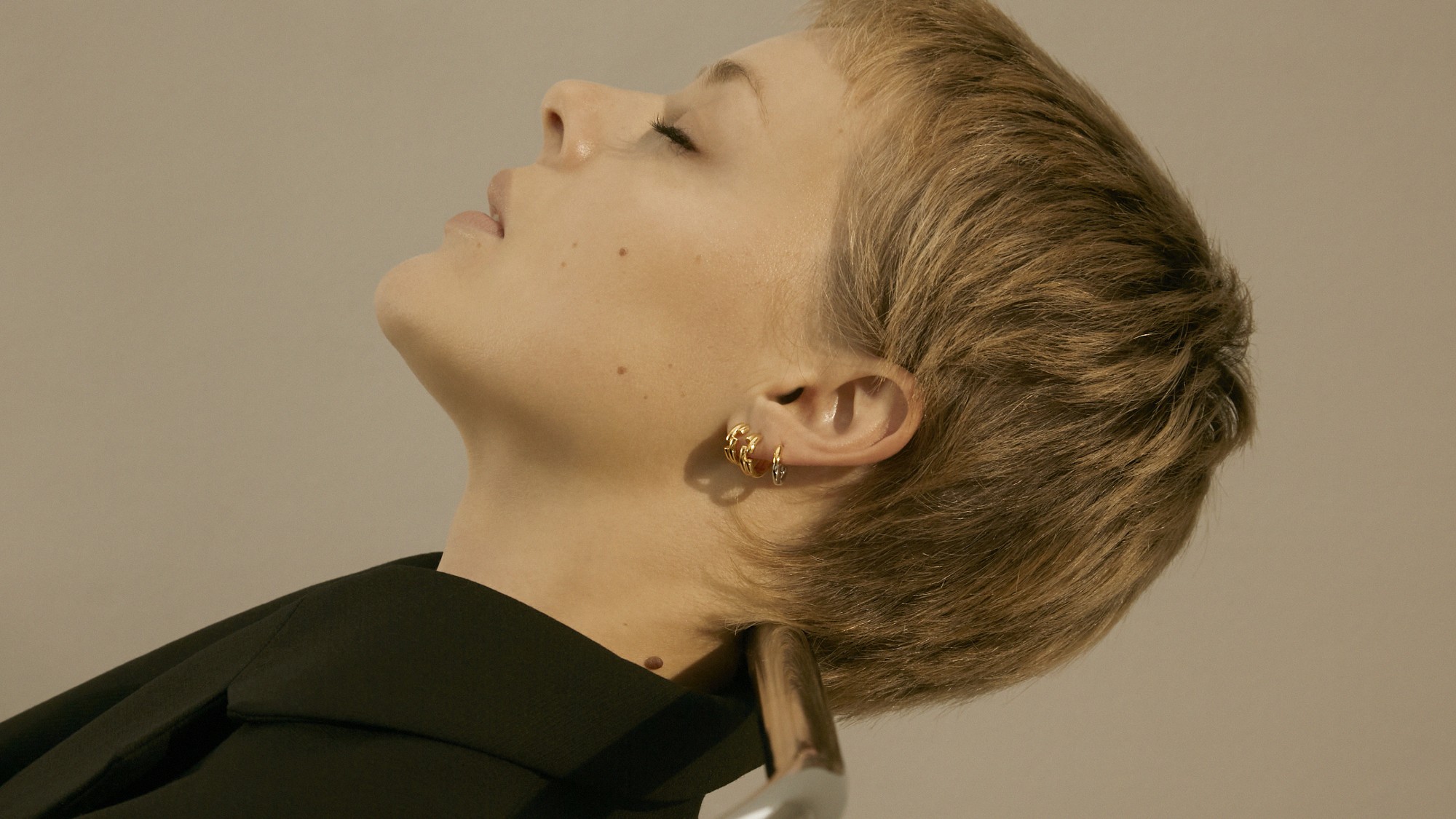
Founded by two sisters in 2013, Otiumberg proposes a new kind of jewellery brand: one that combines desirability, luxury and accessibility. Believing that affordability is key for any long-term sustainable thinking to be effective, the brand takes a circular approach to sustainability – breaking the fashion calendar to embrace a slower, non-seasonal design process to create meaningful, long-lasting pieces through traditional techniques and responsibly sourced materials. This is made easier by the fact that the brand is yet to take any external investment, allowing its founders full control over the business.
Otiumberg considers sustainability from first sketch. Not only does it now use recycled gold and silver across 94% of the collection, its customer recycling and repairs initiatives; wear-forever designs; and focus on eliminating plastic from their supply chain and consumer packaging, cement this as a jewellery brand committed to long-term change.
Harriet Vocking, Chief Brand Officer at Eco-Age and MC Sustainability Awards judge says: "The brand has a clear roadmap, [with] how-tos to encourage their customers to be a part of their sustainable journey. The brand has quite a holistic approach to sustainability and have identified the best SDGs for them and are achieving them, which is great to see."
Highly commended: Monica Vinader
Best Sustainable Small Business
Winner: Onesta
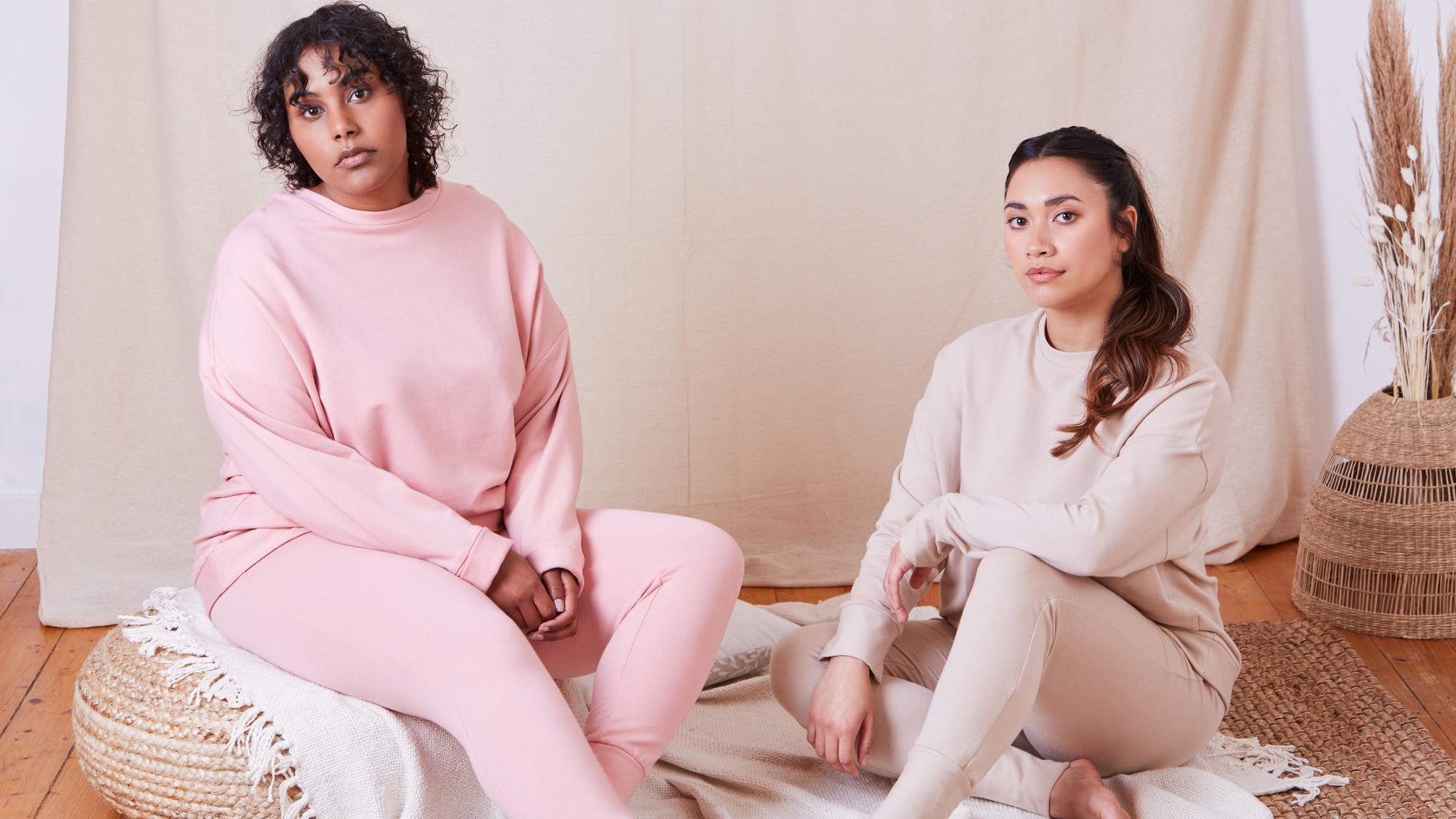
Despite being just a year old, Welsh slow-fashion brand Onesta is already making quiet waves in the industry. Producing small, thoughtfully designed collections from low-impact vegan materials, the brand's name – which comes from the Welsh word for honest – is certainly fitting, as it provides full transparency of production to customers.
In the process of being certified as a B Corporation, the brand has already created eight jobs in a local community that suffers from high unemployment rates, donated 20% of revenue to three charities, started the development of an innovative dye made from waste in conjunction with Aberystwyth University, and set out on its journey towards zero-waste production by converting fabric scraps into reusable make-up wipes in collaboration with Surfers against Sewage.
Our judges were impressed with the scope of the brand's vision, with MC Fashion Editor Penny Goldstone adding: "For such a young company it has achieved a lot, especially when it comes to giving back to its community in South Wales, creating jobs where they have previously been outsourced abroad. We love the small runs and the made-to-order feature for inclusivity."
Highly commended: BEEN London
Highly commended: Monika the Label
Best Sustainable Swimwear Brand
Winner: More Than Swim UK
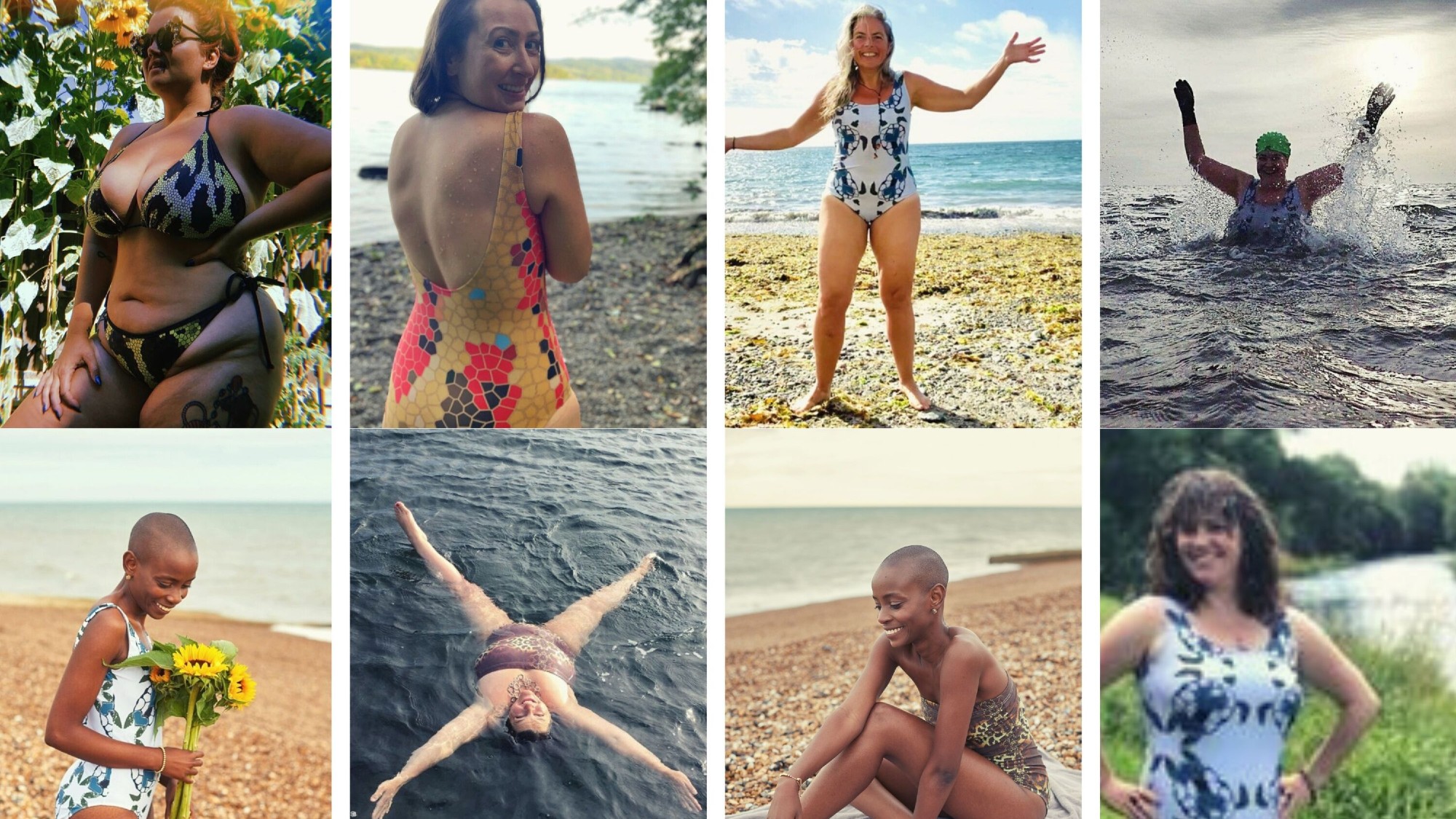
It's no surprise that More Than Swim's brand motto is 'minimise your carbon footprint, maximise your sass'. An inclusive, sustainable swimwear brand produced entirely in the UK, this small company has its sights set on effecting big change. Each handmade-to-order garment is printed to size before being cut and sewn without elastic, and designs are directly transferred onto the fabric using eco-friendly inks.
Determined to play an active role in restoring our planet, More Than Swim makes a donation to Ocean Generation for every site sale, while postage is offset with an additional donation to an Amazon jungle conservation charity. The Sustainability Awards judges were blown away by More Than Swim's commitment to change, despite being such a small operation.
CEO and Founder of Malaika, Noëlla Coursaris Musunka says: "More Than Swim designs with women of all shapes and sizes in mind. It’s great to see that it works on a made-to-order model, which is a brave (and important) step towards creating a slower fashion industry that reduces waste from overproduction."
Best Sustainable Underwear Brand
Winner: Stripe & Stare
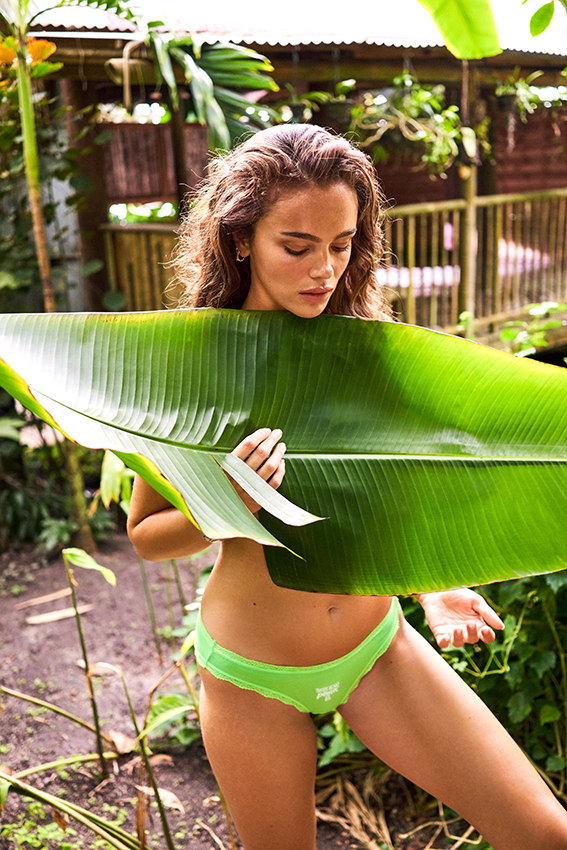
Stripe & Stare is on a mission to help you reduce your impact. The brand uses Lenzing Tencel as the core material across its range, meaning not only is its underwear softer than cotton, but it uses 95% less water, too. Its underwear is currently 95% biodegradable (with 5% elastane), and its 100% biodegradable lace knickers – a world- and brand-first – will be launching later this year.
In the process of achieving B Corp status, sustainability is weaved into every level of the business, from planting a tree for every order (that's 30,000 tress so far), to biodegradable, recycled packaging.
Founder of WUKA and Sustainability Awards judge Ruby Raut says: "Stripe & Stare have great taste in the fabric they choose. Tencel is definitely one of the most sustainable fabrics. I also love that they show their appreciation towards their factory and the people in their supply chain."
Best Sustainable Watch Collection
Winner: Mondaine – Essence
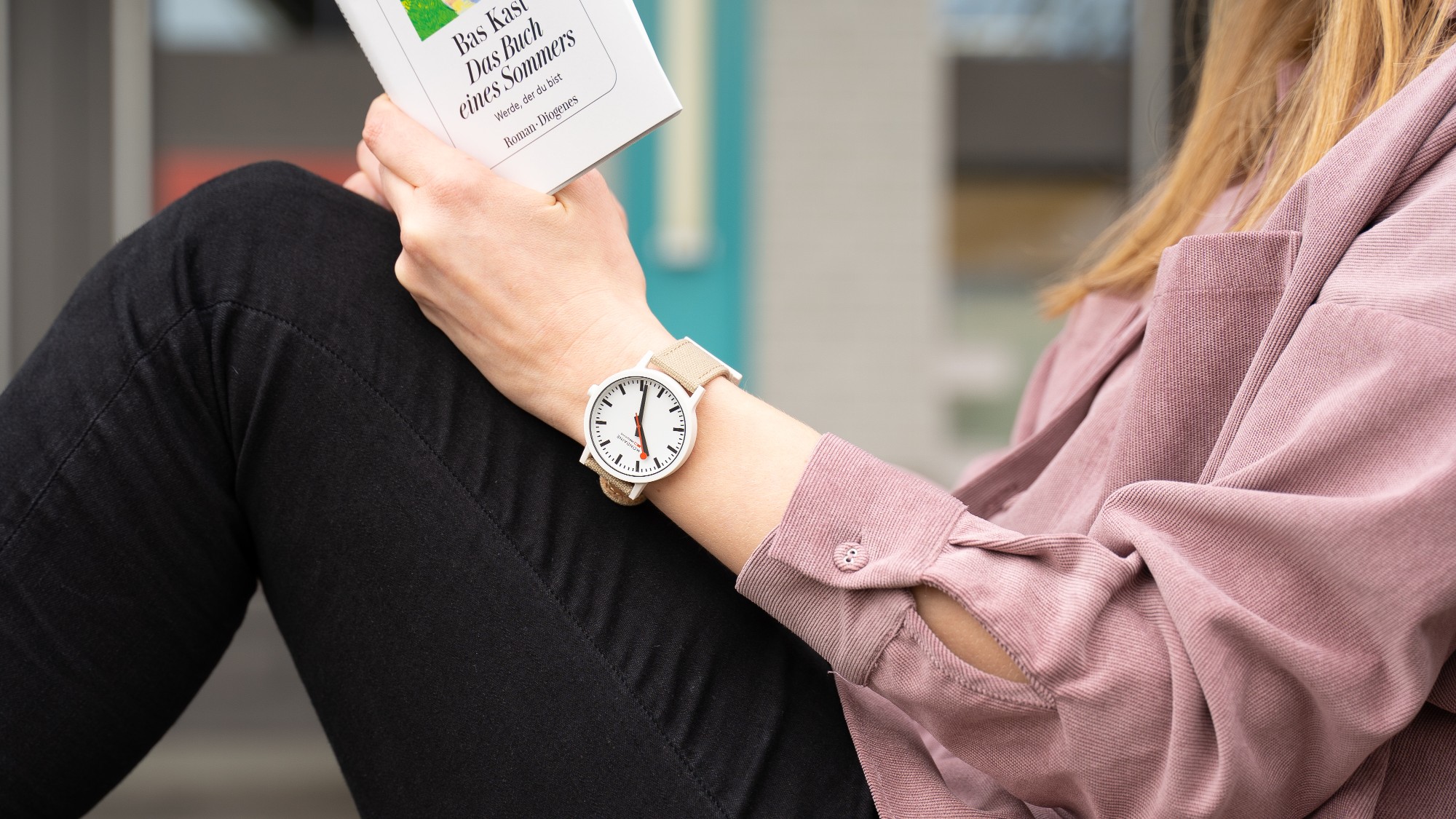
Far from being a recent attempt to keep up with a contemporary trend, sustainability has been part of Mondaine's corporate philosophy for almost 30 years. But the brand went a step further in 2017 when it presented what is probably the world's most sustainable watch.
Enter the Mondaine Essence collection. Featuring the brand's iconic Swiss Railway clock design, the housing of the eco-friendly watch is made from 70% natural raw materials. Having avoided straps made from leather for this collection, the Essence collection's replaceable straps consist of either 50% wondertree oil or 100% recycled PET bottles with a natural cork lining.
Sustainability even extends to its packaging, which consists of more than 96% recycled PET bottles and is also useable as a case for a smartphone or glasses. That doesn't mean Mondaine will be resting on its laurels any time soon, though. The casings and the straps are constantly being developed to become more sustainable, and the search for new, eco-friendly materials and production methods is in full swing.
Best Vegan Brand
Winner: jakke.
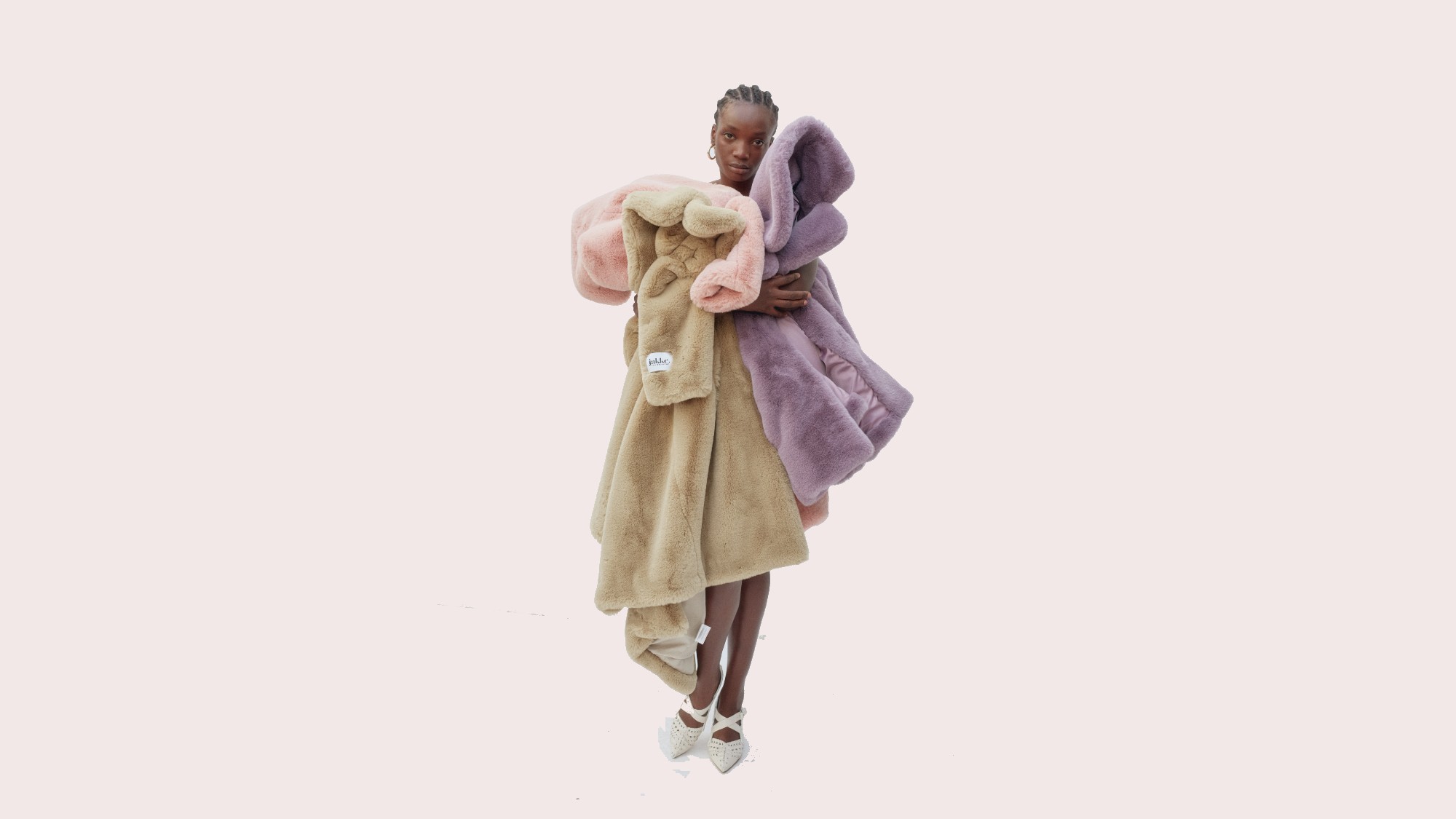
Outerwear brand jakke. makes collections that are 100% cruelty free. Encapsulating the ethos of 'free from', it doesn't use any fur, leather, wool or silk in pieces, opting for sustainable fabrics and offcuts from previous collections instead.
Also good: the brand's Wear & Care range includes recycled polyester fabrics that are made from a blend of 100% recycled plastic bottles, giving second life to a material that's not biodegradable and would otherwise end up in landfill or in our oceans. Such is its commitment to sustainability that 75% of the upcoming AW21 collection is either made from certified recycled fibres or is biodegradable – and, of course, it's cruelty-free.
Speaking of the judges' decision to award jakke. Best Vegan Brand, CEO and Co-Founder of HURR, Victoria Prew, says: "Upcycling pre-loved fabrics from previous collections is a really smart way to tackle waste. A much-needed innovation in the outerwear sector."
Highly commended: PĪFERI
Marie Claire UK have determined the award winners in accordance with the judging criteria and with the information provided by the entrants. All information provided by the winning brands are published in good faith.
Kate McCusker is a freelance writer at Marie Claire UK, having joined the team in 2019. She studied fashion journalism at Central Saint Martins, and her byline has also appeared in Dezeen, British Vogue, The Times and woman&home. In no particular order, her big loves are: design, good fiction, bad reality shows and the risible interiors of celebrity houses.
